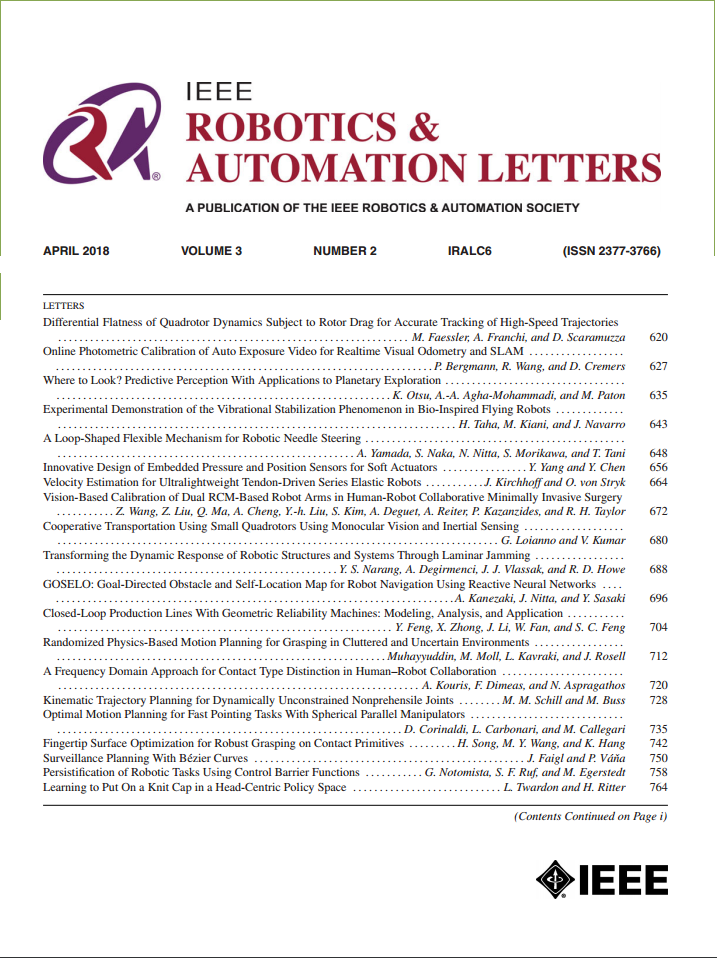基于动态聚类协议的多智能体多资源分配的分散强化学习
IF 5.3
2区 计算机科学
Q2 ROBOTICS
引用次数: 0
摘要
这封信解决了以分散的方式在多个代理之间分配异构资源的挑战。我们提出的方法,液体-图-时间聚类-IPPO,建立在独立近端策略优化(IPPO)的基础上,通过集成动态聚类共识,一种允许智能体根据资源需求形成和适应局部子团队的机制。这种分散的协调策略减少了对全局信息的依赖,并增强了可伸缩性。我们根据标准的多智能体强化学习基线和集中的专家解决方案评估了LGTC-IPPO,这些解决方案跨越了一系列团队规模和资源分布。实验结果表明,即使智能体或资源类型增加,LGTC-IPPO也能获得更稳定的奖励、更好的协调性和鲁棒性。此外,我们还说明了动态集群如何使代理能够有效地重新分配资源,以用于释放资源的场景。本文章由计算机程序翻译,如有差异,请以英文原文为准。
Decentralized Reinforcement Learning for Multi-Agent Multi-Resource Allocation via Dynamic Cluster Agreements
This letter addresses the challenge of allocating heterogeneous resources among multiple agents in a decentralized manner. Our proposed method, Liquid-Graph-Time Clustering-IPPO, builds upon Independent Proximal Policy Optimization (IPPO) by integrating dynamic cluster consensus, a mechanism that allows agents to form and adapt local sub-teams based on resource demands. This decentralized coordination strategy reduces reliance on global information and enhances scalability. We evaluate LGTC-IPPO against standard multi-agent reinforcement learning baselines and a centralized expert solution across a range of team sizes and resource distributions. Experimental results demonstrate that LGTC-IPPO achieves more stable rewards, better coordination, and robust performance even as the number of agents or resource types increases. Additionally, we illustrate how dynamic clustering enables agents to reallocate resources efficiently also for scenarios with discharging resources.
求助全文
通过发布文献求助,成功后即可免费获取论文全文。
去求助
来源期刊

IEEE Robotics and Automation Letters
Computer Science-Computer Science Applications
CiteScore
9.60
自引率
15.40%
发文量
1428
期刊介绍:
The scope of this journal is to publish peer-reviewed articles that provide a timely and concise account of innovative research ideas and application results, reporting significant theoretical findings and application case studies in areas of robotics and automation.
 求助内容:
求助内容: 应助结果提醒方式:
应助结果提醒方式:


